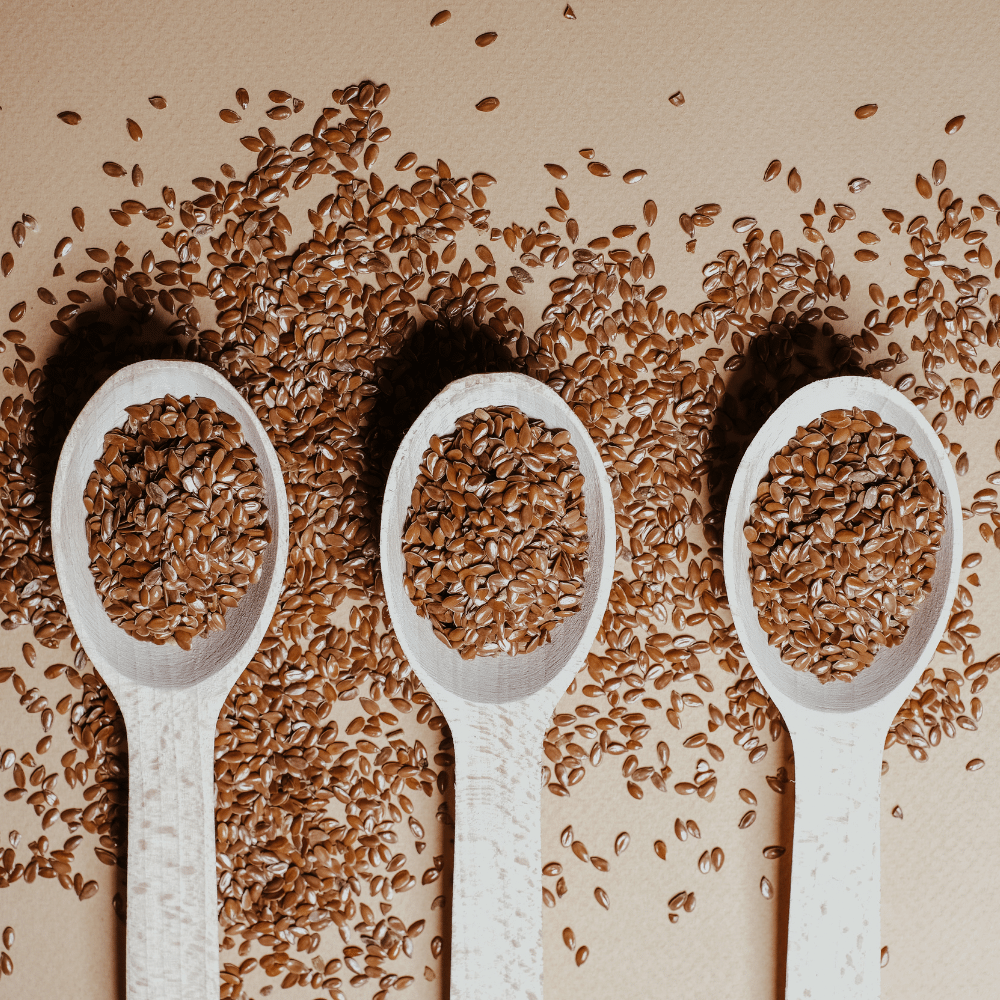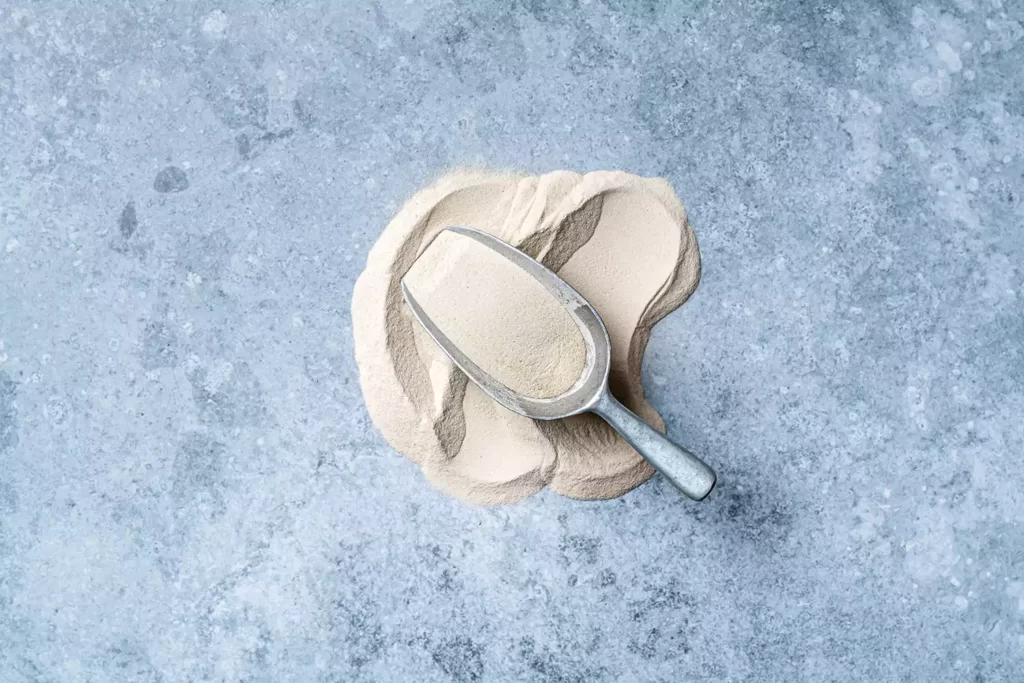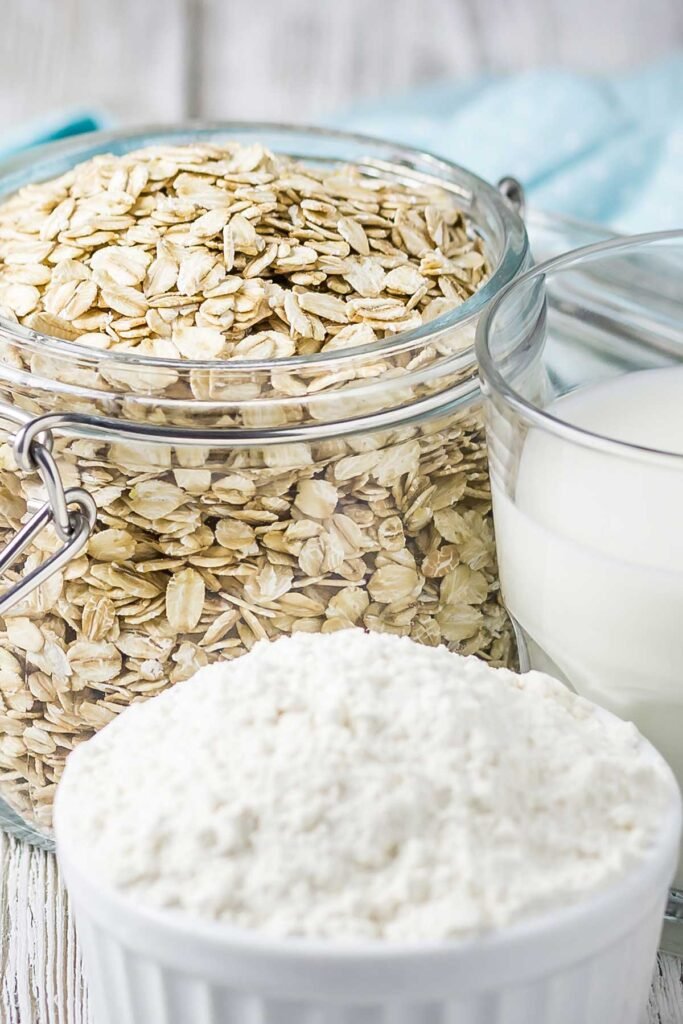Psyllium husk is a popular ingredient in many recipes these days, but it can be hard to find and expensive.
If you’re looking for an alternative, there are several great substitutes that can be used in its place.
From flaxseed meal and chia seeds to oat bran and coconut flour, this article will explore the 8 best substitutes for psyllium husk so that you can keep your favorite recipes delicious without breaking the bank.
What is Psyllium Husk?

Psyllium husk is a natural dietary fiber derived from the plantago ovata plant.
It has been used for centuries in India as a traditional remedy and has recently become popular in Western countries for its health benefits.
In terms of cooking, psyllium husk is most often used as an egg substitute or to thicken sauces, dressings, and batters.
When mixed with water or other liquids it forms a gel-like substance that acts similarly to egg whites when heated.
Psyllium husk can also be added to doughs such as breads and pizza crusts to improve their texture while adding valuable nutrients.
Psyllium husks are also frequently used in vegan baking recipes due to their ability to act as a binding agent without the use of eggs or dairy products.
They add moisture and help bind ingredients together without altering flavor profiles too drastically – making them ideal for vegan cakes, muffins and cookies!
The 8 Best Substitutes For Psyllium Husk
Psyllium husk is an excellent ingredient to have in your pantry.
It adds a nice texture and flavor to many dishes, but it can be difficult to find or expensive.
Fortunately, there are several substitutes for psyllium husk that you can use if you don’t have any on hand.
Here are the 8 best substitutes for psyllium husk:
1 – Flax Seeds

Flaxseed is an excellent source of dietary fiber, with 8 grams per two tablespoons.
It’s also high in Omega-3 fatty acids, making it a very nutritious alternative to psyllium husk.
When using flax seeds as a substitution for psyllium husk, you will need to grind them into a fine powder before adding them to your recipes.
This helps the fibers break down and become more easily absorbed by your body.
You can use ground flaxseeds as a thickener for sauces or soups and as an egg replacement in baking recipes such as muffins and cookies.
You can also add it to smoothies or shakes for added nutrition and texture.
It’s important to note that many people find that their bodies react differently when consuming ground flax seed versus psyllium husk, so be sure to pay attention and adjust accordingly if needed!
2 – Chia Seeds

Chia seeds are becoming a popular alternative to psyllium husk in many recipes.
Chia seeds have a mild, nutty flavor and can be used in similar ways as psyllium husk.
For example, they can be ground up or soaked in water and used as an egg replacement for baking or added to smoothies and yogurt for extra fiber.
Additionally, when mixed with liquid, chia seeds form a gel-like consistency that is often used as an ingredient in homemade vegan burgers, meatballs, sauces and dressings.
They’re also great sprinkled over cereal or oatmeal for added nutrition!
3 – Xanthan Gum

Xanthan gum has a similar texture and consistency to psyllium husk, making it ideal for baking and cooking.
Xanthan gum is made from fermented sugars and contains no gluten, so it is also suitable for those with gluten allergies or sensitivities.
Because of its thickening properties, it can be used as an egg replacement in vegan dishes or as a binder instead of psyllium husk.
When using xanthan gum as an alternative to psyllium husk, the amount should be adjusted accordingly since the two ingredients have different absorption rates.
For instance, when substituting one teaspoon of xanthan gum for every tablespoon of psyllium husk, use only half the amount stated in your recipe.
4 – Cornstarch

Cornstarch is a common and versatile ingredient used in baking and cooking.
It’s also an excellent alternative to psyllium husk for those who can’t find or don’t want to use it.
Cornstarch makes an ideal thickener for sauces, gravies, soups, puddings, custards and more.
It has twice the thickening power of wheat flour but requires heating for full effectiveness.
It can be used as a substitute for psyllium husk in baked goods like cakes, muffins or cookies because it helps bind ingredients together while adding little flavor or texture of its own.
In addition to being a great thickening agent, cornstarch is also useful when making fried foods since it’s able to absorb excess oil from the surface of food items such as chicken nuggets or French fries that have been fried in oil.
This results in crispier items with less greasy taste and feel.
5 – Almond Flour

Almond flour is a popular alternative to psyllium husk for baking and cooking.
It has a slightly nutty flavor and provides many of the same benefits as psyllium husk, such as helping to bind ingredients together, adding moisture and texture, and providing fiber.
It’s also gluten-free and high in protein.
When using almond flour in place of psyllium husk, it’s best to use blanched almond flour which has had its skins removed before grinding into a fine powder.
This results in a lighter color that won’t leave your baked goods looking grayish or muddy like unblanched almond flour would do.
Almond flour can be used in most recipes that call for psyllium husk but may require adjustments depending on the recipe.
For instance, when replacing 1 tablespoon of ground psyllium husks with almond flour, you should typically use 2 tablespoons instead since it does not absorb liquid quite as well as psyllium does.
Additionally, if you are making bread or other doughs requiring yeast you may need less almond flour than what is called for due to its higher fat content which will inhibit the yeast.
6 – Coconut Flour

Coconut flour is an excellent alternative to psyllium husk in cooking and baking.
It has a slightly sweet flavor that works well in many recipes, while still providing the same texture as psyllium husk.
Coconut flour is also higher in fiber than traditional wheat flours, making it a healthier option.
Additionally, coconut flour can be used as a thickener for sauces and soups, or even added to smoothies for extra protein and vitamins.
Depending on the recipe you are using, you may need to adjust other ingredients if you choose to use coconut flour instead of psyllium husk; this could include adding more liquid since coconut flour absorbs moisture quickly.
7 – Ground Oats

Ground oats are mild and slightly sweet, with a nutty undercurrent that adds complexity to the dish.
They have a soft, chewy texture that absorbs liquid easily, making them perfect for adding nutrition and bulk to baked goods such as muffins or pancakes.
Ground oats can also be used as a thickener in soups and sauces thanks to their absorbent properties.
8 – Arrowroot Powder

Arrowroot powder is a fine and light starch that is extracted from the roots of tropical plants.
It has been used as an ingredient in cooking for centuries, particularly in Asian dishes.
Arrowroot powder can be used to thicken sauces, soups, and gravies without altering their taste or texture.
Because it does not contain gluten, arrowroot powder is often used as a substitute for flour when making baked goods such as cakes, cookies and muffins.
In addition to its culinary uses, arrowroot powder can also be applied topically to soothe irritated skin due to its natural anti-inflammatory properties.

The 8 Best Substitutes For Psyllium Husk
Ingredients
- Flax Seeds
- Chia Seeds
- Xanthan Gum
- Cornstarch
- Almond Flour
- Coconut Flour
- Ground Oats
- Arrowroot Powder
Instructions
- Pick your favorite substitute from the list above.
- Follow cooking directions for your selected substitute with the proper ratio of ingredients.
Hi, I'm Benjamin. I love cooking, long walks, and my girlfriend! Here you’ll find simple and delicious recipes that you can make in 30 minutes or less.

